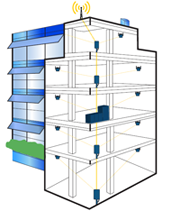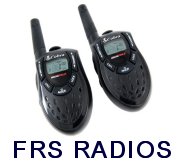We all share a common problem at one point or another. Poor radio coverage! Whether Cell Phone, Two-Way Radio, Wi-Fi or Wireless Data, RF (Radio Frequency) Wireless signals for the most part have the same characteristics for signal propagation. Different frequencies penetrate buildings and structures in a manner that signal loss will occur. This means you have good coverage outside, but you may have marginal coverage inside. You have marginal coverage outside, but you may have no coverage inside.
Building structures are made up of many different materials that either absorb RF or reflect RF. Either way a signal in the center of the building never seems to make it to you. You need to stand by the window in order to use your device.
Today’s solutions for signal loss in buildings or structures are far more advanced and lend itself to a seamless transition.
Let’s go through the acronyms:
DAS – Distributed Antenna System, a network of radio frequency cables or fiber optic cables with antenna terminations throughout a building or structure.






